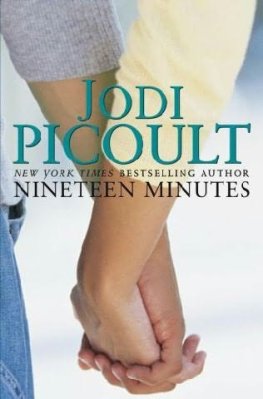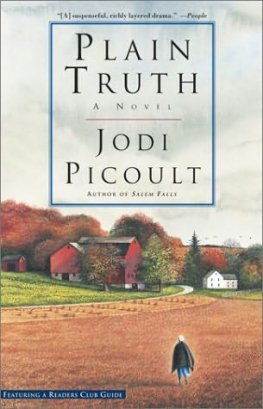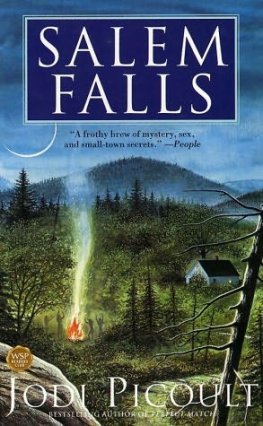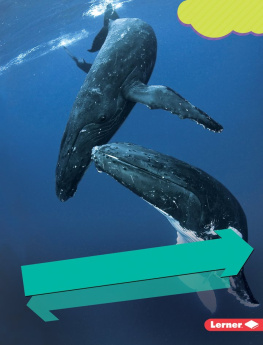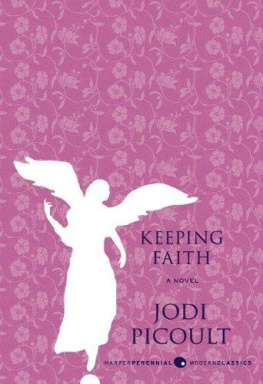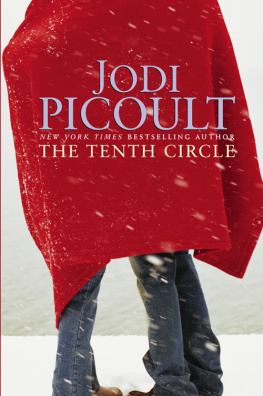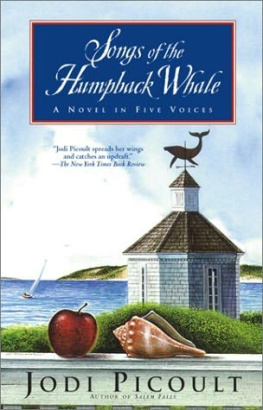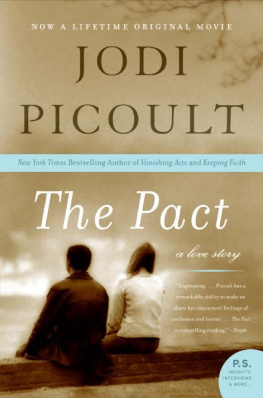
Jodi Picoult
Songs of the Humpback Whale:
A Novel in Five Voices
TO TIM, FOR EVERYTHING YOUVE GIVEN ME
The author is grateful to many people and institutions for the detailed information they provided: Sarah Genman, the librarian at the New England Aquarium; the Provincetown Center for Coastal Studies; the Long Term Research Institute in Lincoln; Honeypot Orchards and Shelburne Farm in Stow. Special thanks to Katie Desmond and her tireless work at the Xerox machine, to everyone in my family who read the manuscript and supported my efforts, and to those people whose lives and experiences I borrowed to create fiction. Finally, this book would not have been published without the help of Laura Gross, my agent, who always believed in me; and Fiona McCrae, my editor, whose expertise and faith were invaluable. For this special paperback edition, Id also like to thank Emily Bestler, who had the delightful idea that my fans would want to read everything Id written, and then made it possible.
Prologue REBECCA November 1990
In the upper right hand corner of the photo is a miniature airplane that looks as if it is flying right into my forehead. It is very tiny and steel-blue, a long bloated oval cut in the middle with its own wings. It is the shape, really, of the Cross. It was the first thing my mother noticed when we received the photo in Massachusetts. You see, Rebecca, she said. Its a sign.
When I was three and a half, I survived a plane crash. Ever since, my mother has told me I am destined for something special. I cant say I agree with her. I do not even remember. She and my father had had a fight-one that ended with my mother crying into the garbage disposal and my father taking all of the original paintings off the walls and stashing them in the trunk of his Impala for safekeeping. As a result, my mother took me out to my grandparents breezy yellow home near Boston. My father kept calling. He threatened to send the FBI if she didnt send me back home. So she did, but she told me she couldnt go with me. She actually said, Im sorry, honey, but I cant stand that man. Then she dressed me in a little lemon knit outfit with white gloves. She turned me over to a stewardess at the airport, kissed me goodbye, and said, Now dont lose the gloves. I paid a bundle.
I dont remember much about the crash. The plane broke all around me; it split in half right before row number eight. All I recall was trying so hard to hold tight onto those gloves, and the way people didnt move, and not being sure if it was all right to breathe.
I dont remember much about the crash. But when I was old enough to understand, my mother told me that I was one of five survivors. She said that my picture was on the cover of Time- me crying in a burnt little yellow outfit with my arms outstretched. A farmhand had taken the photo with a Brownie camera and it had gone out to press and into the hearts of millions of people in America. She told me about fires that reached the sky and singed the clouds. She told me how insignificant the fight with my father was.
A trucker took this photo of us the day we left California. In the corner is that airplane. My mothers hair is tied up in a ponytail. Her arm is casually draped around my shoulder, but her fingers rest unnaturally tight on my neck as if she is trying to keep me from running away. She is smiling. She is wearing one of my fathers shirts. Im not smiling. Im not even looking at the camera.
The truckers name was Flex. He had a red beard and no moustache. He said we were the best scenery hed seen since Nebraska. Flex used his own camera-wed left in too big a hurry to take ours. He said, Ill take your picture and you give me your address and Ill send it. My mother said what the hell, it was her brothers rental address. If Flex turned out to be a lunatic and burned the place down no one would really be hurt.
Flex sent the photo to us care of Uncle Joley. It came in a used, readdressed manila envelope snaked with a line of twenty-five one-cent stamps. He attached a Post-it note for my mother that she did not let me read.
Im telling you the story of our trip because Im the only one who has really put it all together. It involved all of us-Mom, Daddy, Uncle Joley, Sam, even Hadley-but we all see it different ways. Me, I see it going backwards. Like a rewinding movie. I dont know why I see it like this. I know, for example, that my mother doesnt.
When we got the photo from Flex, we all stood around the kitchen table looking at it-me, Mom, Joley and Sam. Joley said it was a nice picture of me, and where did we take it? Sam shook his head and stepped back. Theres nothing there, he said. No trees, no canyons, nothing.
Were there, my mother said.
Thats not why you took that picture, Sam said. His voice hung at the edges of the kitchen like thin silver. Theres more. We just all cant see it. And like that, he walked out of the room.
My mother and I turned to each other, surprised. This had been our secret. We both looked instinctively at a spot in the highway to the right of our bodies. It is the place where California becomes Arizona-a change that truckers can sense in the pavement; that for everyone else remains unmarked.
The night before I got married I woke up, screaming, from my sleep. My parents came into the room and put their arms around me; they patted my head and smoothed my hair, fine, and I still couldnt stop screaming. Even with my mouth closed, I continued-the high, shrill note of a nocturnal animal.
My parents were beside themselves. We lived in a button-down suburb of Boston, and we were waking up the neighbors one by one. I watched the lights come on in different houses-blue and yellow, blinking like Christmas-and wondered what was happening to me.
This wasnt a common occurrence. I was barely nineteen, a straight-A student fresh out of Wellesley College and in 1976 that was still an accomplishment. I was marrying the man of my dreams in a prototypical white clapboard New England church, and the reception-a lavish one with white-gloved waiters and Beluga caviar-was going to be held in my parents backyard. I had a job waiting for me when I returned from my honeymoon. There was no foreseeable problem that I could articulate.
To this day, I dont know why that happened to me. As mysteriously as it all started, the screaming went away and the next morning I married Oliver Jones- the Oliver Jones-and we just about lived happily ever after.
I am the only speech pathologist in this town, which means I get shuttled back and forth to different elementary schools in the San Diego suburbs. Its not such a big deal now that Rebecca is old enough to take care of herself, and since Oliver is away so much of the time, I have less to do at home. I enjoy my work but certainly not the way Oliver enjoys his work. Oliver would be content to live in a sailcloth tent on the coast of Argentina, watching his whales sound in warm water.
My job is to help children find their voices-kinds that come to school mute, or with lisps or cleft palates. At first, they come into my little makeshift classroom one at a time and they shuffle their Keds on the floor and shyly glance at the formidable recording equipment and they are absolutely silent. Sometimes I stay silent too, until the student breaks the ice and asks what he or she is supposed to do. Some students cover their mouths with their hands at this point; I have even seen one little girl cry: they cannot stand to hear their own voices, pieces of themselves that they have been told are ugly. My role is to show them theres someone who is ready to listen to what they have to say and the way they have to say it.
Next page


